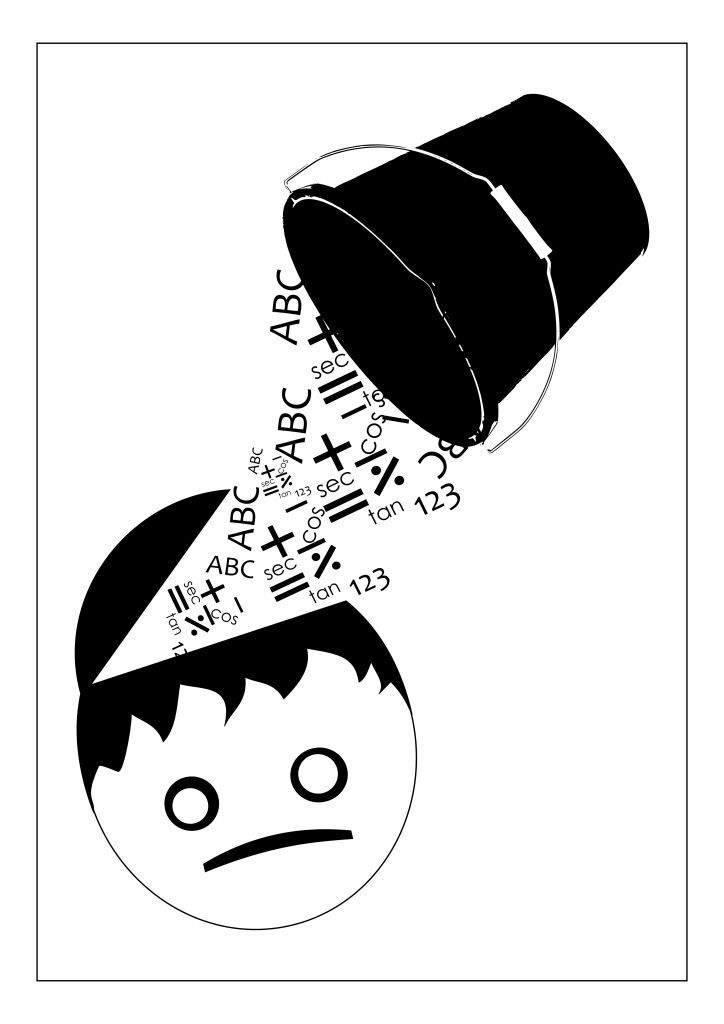 In my short (and still continuing) career span as a teacher to students in the Science stream in Grade Eleven and Grade Twelve, I’ve already had the opportunity of being privy to many intriguing discussions with a lot of parents. “My child is in Grade Eight. He is very bright. Please coach him for JEE Advanced from now so that he can be a topper” and “Sir, I want my son to be an IITian because it was my unfulfilled dream to be one” are some of the more common, yet interesting statements that I have heard.
In my short (and still continuing) career span as a teacher to students in the Science stream in Grade Eleven and Grade Twelve, I’ve already had the opportunity of being privy to many intriguing discussions with a lot of parents. “My child is in Grade Eight. He is very bright. Please coach him for JEE Advanced from now so that he can be a topper” and “Sir, I want my son to be an IITian because it was my unfulfilled dream to be one” are some of the more common, yet interesting statements that I have heard.
In a country that, many vociferously seem to suggest, is regarded as an intellectual powerhouse of the world, this obsession with becoming ace exam-takers is indeed baffling. While the zeal of parents in giving their children the best possible education is understandable, what stumps me completely is their sheer desire to create super-kids. It seems like there has been a paradigm shift in the general perception of education. From a being a learning-oriented and skill-building process to being a tool for winning academic accolades – it seems as if education has evolved simply into a weapon of mass instruction!
From a being a learning-oriented and skill-building process to being a tool for winning academic accolades – it seems as if education has evolved simply into a weapon of mass instruction!
Being a teacher, nothing can be more discomforting than seeing a bunch of youngsters mindlessly and forcibly putting themselves through a grind merely to justify the vague notions of intelligence that the society seems to have of them. And while, admittedly, I have come across the odd kid who is himself or herself extremely motivated to excel in examinations, what worries me is the obsession with marks and results.
The way I see it, we’re creating training centres for toppers, not thinkers. Our focus in education is becoming competition, not competence. We’re worrying about grades, not intellectual growth. Consequently, there has been an increasing reliance on rote-learning. And a lot of the stakeholders in the education process– the parents, the teachers and the students themselves– don’t seem to mind it! In fact, beating the competition has become such an important end in itself that I’ve heard a lot of kids say, “Sir, is it okay if we study only from this textbook, because all questions are chosen only from here.”
We’re creating training centres for toppers, not thinkers. Our focus in education is becoming competition, not competence. We’re worrying about grades, not intellectual growth.
The teacher today has been relegated to the role of a service-provider who must ensure results. Many parents come up to me and tell me, “We are paying this institute so that our kids get good grades. Kindly make sure he does well.” Well, if only teachers had a magic wand to make their students ace the exams, life would be bliss! The trend today is worrisome, to say the least. The road we’re taking leads to only one destination– intellectual stagnation.
So what do we do about this problem? Will it help if we ban coaching centres? What if we change the JEE pattern? Is the introduction of MH-CET going to change things? Are a few more IITs going to decrease this mindless race to assert a flawed sense of superiority?
Frankly, I don’t think any of these measures are a long-term solution to the problem. These are, at best, symptomatic treatments. The first and foremost change that I perceive as a requirement is a change of mind-set. We need to stop viewing marks, accolades and institutional admissions as ends in themselves and start engendering a spirit of curiosity and cogitation in the minds of our children. If we are able to infuse kids with interest in learning a subject rather than making him or her prepare solely for examinations just because he or she can, that will be our first step towards solving the bigger problem.
We need to stop viewing marks, accolades and institutional admissions as ends in themselves and start engendering a spirit of curiosity and cogitation in the minds of our children.
Also, talking of changing mind-sets, we need a resource pool of teachers who are both knowledgeable and passionate about creating change, while being open to adapting various teaching methodologies as required by the student. As long as we have teachers who make it their business to only push for results by endorsing rote-learning and who do not focus on developing a child’s abilities, the vicious cycle of result-driven education doesn’t seem likely to end. Moreover, inflexibility of teachers with regards to adapting to a child’s educational needs is becoming another problematic area. The insistence of some teachers in delivering a pre-decided chunk of knowledge in a certain way, without bothering about whether the students are actually able to cope and assimilate the gyaan, is appalling. We need teachers who take the effort of making a child understand and apply concepts.
Change, they say, is the only constant. As a society, it is time for us to embrace this change in the education domain. Not for ourselves, but for the future generations. Let us not just remain a nation of test-takers.